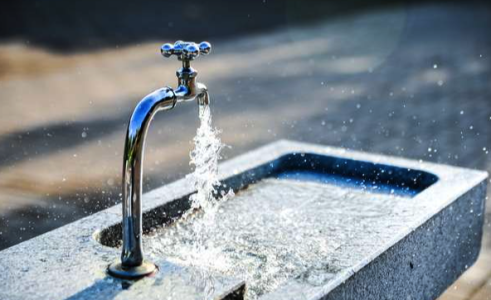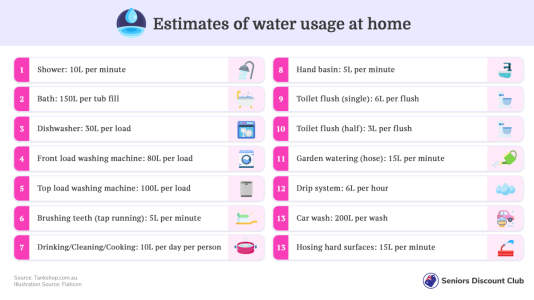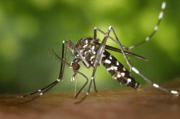Looming water crisis may soon force a major city to reinstate restrictions
- Replies 18
With the warmer months and scorching summer approaching, the importance of conserving water in our homes has never been more crucial.
Unfortunately, this urgency coincides with the unsettling news of impending water restrictions, which is especially concerning in a city already on high alert for a potential water shortage.
Brisbane Lord Mayor Adrian Schrinner has warned that water restrictions could be reintroduced within the following year.
This looming possibility is based on recent forecasts indicating a substantial decline in the city's water supply. By September 2024, it is estimated that the total water supply may plummet by as much as 20 per cent.

Wivenhoe Dam, which serves as the primary water reservoir for the city, currently stands at just 71 per cent of its total 1.16 million megalitre capacity.
According to SEQ Water, the state authority responsible for managing water resources, recent data suggests that this figure could drop to 60 per cent as early as January and potentially decrease further to a critical 50 per cent by September.
'Residents are currently being warned they could face water restrictions in 12 months' time if weather predictions about a dry summer are right,' said Mr Schrinner.
The city last enforced water restrictions back in 2021 when the water supply dropped to a concerningly low 55.3 per cent capacity. Now, with plans to add 200,000 new homes to the capital city over the next 20 years, there's a growing strain on the city's water resources.
For the Lord Mayor, the time is right to advocate again for adding a new water source.
'Brisbane is going to need another water source in addition to Wivenhoe Dam. And it's going to need it far sooner than previously predicted,' he said.
Mr Schrinner urges the state government to immediately address the issue before it worsens. He also expressed willingness to discuss alternative water storage options that don't involve building a new dam.
'This is a conversation we have to have. It takes years to properly plan and deliver new water sources,' he explained.
'I'm calling on the state government to urgently address the precarious predicament of Brisbane's water supplies. If it continues its approach of not doing a damn thing, our region will be left even more at risk of running dry.'
Queensland Water Minister Glenn Butcher responded to Mr Schrinner's statements by calling them 'scare tactics'.
'I just want to make it quite clear, the water levels across the grid here in south-east Queensland are now sitting at 71 per cent,' he said.
'Even if we don't get rain for the next 12 months, we still will not be going through those restrictions that he was talking about.'
'We've done it a few years ago when we got to a point where we had to start to remind people to conserve water,' added Mr Butcher.
'And I just want to say to the people of south-east Queensland, they are very responsible and respectable the way that they use their water here.'
According to reports, Australians use a lot of water—about 100,000 litres per person each year, which is roughly 274 litres every day.
If you want to figure out how much water your household uses, you can use this online calculator. You can also check your water bills, but calculating how much water your appliances and taps use will make you more aware of your water consumption.

Members, especially those residing in Brisbane, what are your thoughts on this news? Have you recently experienced any water supply shortages or outages? With summer approaching, do you believe water restrictions are necessary to preserve the state supply? Please share your thoughts in the comments below!
Unfortunately, this urgency coincides with the unsettling news of impending water restrictions, which is especially concerning in a city already on high alert for a potential water shortage.
Brisbane Lord Mayor Adrian Schrinner has warned that water restrictions could be reintroduced within the following year.
This looming possibility is based on recent forecasts indicating a substantial decline in the city's water supply. By September 2024, it is estimated that the total water supply may plummet by as much as 20 per cent.

Brisbane residents have been warned of water restrictions for several months if the state government continues to 'do nothing'. Credit: Pixabay.
Wivenhoe Dam, which serves as the primary water reservoir for the city, currently stands at just 71 per cent of its total 1.16 million megalitre capacity.
According to SEQ Water, the state authority responsible for managing water resources, recent data suggests that this figure could drop to 60 per cent as early as January and potentially decrease further to a critical 50 per cent by September.
'Residents are currently being warned they could face water restrictions in 12 months' time if weather predictions about a dry summer are right,' said Mr Schrinner.
The city last enforced water restrictions back in 2021 when the water supply dropped to a concerningly low 55.3 per cent capacity. Now, with plans to add 200,000 new homes to the capital city over the next 20 years, there's a growing strain on the city's water resources.
For the Lord Mayor, the time is right to advocate again for adding a new water source.
'Brisbane is going to need another water source in addition to Wivenhoe Dam. And it's going to need it far sooner than previously predicted,' he said.
Mr Schrinner urges the state government to immediately address the issue before it worsens. He also expressed willingness to discuss alternative water storage options that don't involve building a new dam.
'This is a conversation we have to have. It takes years to properly plan and deliver new water sources,' he explained.
'I'm calling on the state government to urgently address the precarious predicament of Brisbane's water supplies. If it continues its approach of not doing a damn thing, our region will be left even more at risk of running dry.'
Queensland Water Minister Glenn Butcher responded to Mr Schrinner's statements by calling them 'scare tactics'.
'I just want to make it quite clear, the water levels across the grid here in south-east Queensland are now sitting at 71 per cent,' he said.
'Even if we don't get rain for the next 12 months, we still will not be going through those restrictions that he was talking about.'
'We've done it a few years ago when we got to a point where we had to start to remind people to conserve water,' added Mr Butcher.
'And I just want to say to the people of south-east Queensland, they are very responsible and respectable the way that they use their water here.'
According to reports, Australians use a lot of water—about 100,000 litres per person each year, which is roughly 274 litres every day.
If you want to figure out how much water your household uses, you can use this online calculator. You can also check your water bills, but calculating how much water your appliances and taps use will make you more aware of your water consumption.
Key Takeaways
- Tough water restrictions are expected to return to Brisbane next year if the state government ignores warnings, according to the Lord Mayor Adrian Schrinner.
- The city's primary water store, Wivenhoe Dam, is at 71 per cent of its total capacity and could fall to 50 per cent by September 2024.
- The Lord Mayor has renewed calls for developing a new water source, considering projected population growth and the increasing pressure on the city's water supply.
- Queensland Water Minister Glenn Butcher called Mr Schrinner's statements 'scare tactics', saying there's no need for restrictions anytime soon.
Members, especially those residing in Brisbane, what are your thoughts on this news? Have you recently experienced any water supply shortages or outages? With summer approaching, do you believe water restrictions are necessary to preserve the state supply? Please share your thoughts in the comments below!








